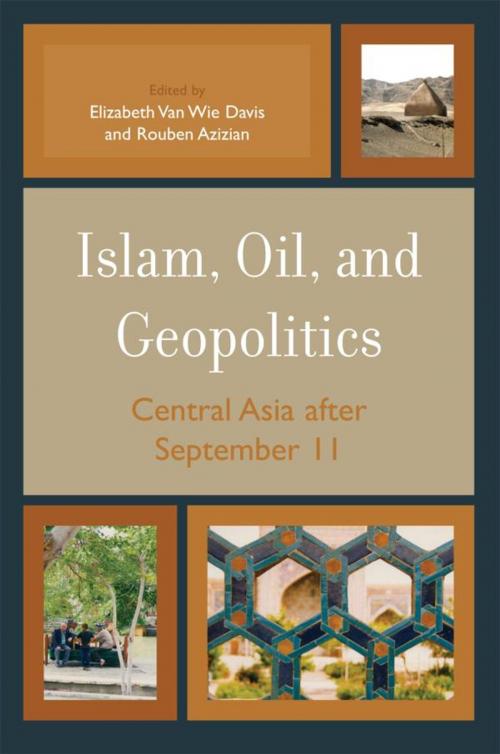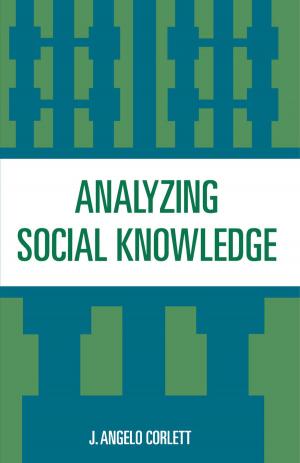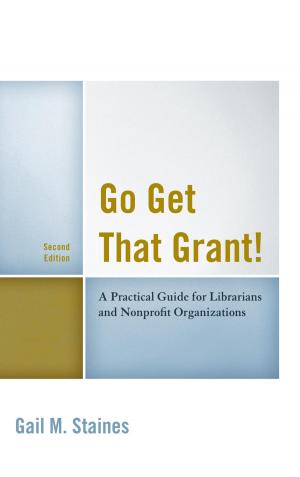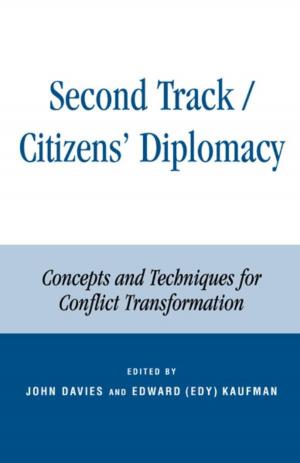Islam, Oil, and Geopolitics
Central Asia after September 11
Nonfiction, Social & Cultural Studies, Political Science, International, International Relations| Author: | ISBN: | 9781461638285 | |
| Publisher: | Rowman & Littlefield Publishers | Publication: | November 6, 2006 |
| Imprint: | Rowman & Littlefield Publishers | Language: | English |
| Author: | |
| ISBN: | 9781461638285 |
| Publisher: | Rowman & Littlefield Publishers |
| Publication: | November 6, 2006 |
| Imprint: | Rowman & Littlefield Publishers |
| Language: | English |
Since the tragic events of September 11, Central Asia has been drawn into the intense struggle of the international community against the forces of religious extremism and transnational crime. The great powers were able to put aside their geopolitical differences in order to crush al-Qaeda and the Taliban. With the marginalization of the Taliban and the eviction of al-Qaeda from Afghanistan, however, the tension between the great powers is notably increasing, as is the discomfort of Central Asian states who find themselves, their political development, and their oil reserves in the middle of a renewed Great Game.
Islam, Oil, and Geopolitics is a truly international volume, including chapters written by senior scholars, upcoming students in the field, prominent diplomats, and renowned academics from Russia, China, the United States, and the Central Asian republics. They collaborate to focus on three important issues that are usually—and unfortunately—analyzed separately: Islamic political issues, energy security, and geopolitical maneuvering. Once an obscure and little-known region, Central Asia has become an important test of America's ability to consistently promote global liberal change, of Russia's true foreign policy agenda, and of China's readiness to translate economic power into political influence. Terrorism, economics, and politics all converge in this strategic region, with important implications for Asia and the world. This significant and timely volume helps readers understand current events in Central Asia and how those events affect the rest of the world.
Contributions by: Kamoludin Abdullaev, Rouben Azizian, Gaye Christoffersen, Elizabeth Van Wie Davis, Feng Shaolei, Pan Guang, Shireen Hunter, Alisher Khamidov, Mikhail A. Konarovsky, Najibullah Lafraie, Murat Laumulin, Sergey I. Lounev, Aleksei V. Malashenko, Orhon Myadar, Manabu Shimizu, Thomas W. Simons Jr., Robert Smith, Sergei Troush, Kang Wu, and Shi Yinhong.
Since the tragic events of September 11, Central Asia has been drawn into the intense struggle of the international community against the forces of religious extremism and transnational crime. The great powers were able to put aside their geopolitical differences in order to crush al-Qaeda and the Taliban. With the marginalization of the Taliban and the eviction of al-Qaeda from Afghanistan, however, the tension between the great powers is notably increasing, as is the discomfort of Central Asian states who find themselves, their political development, and their oil reserves in the middle of a renewed Great Game.
Islam, Oil, and Geopolitics is a truly international volume, including chapters written by senior scholars, upcoming students in the field, prominent diplomats, and renowned academics from Russia, China, the United States, and the Central Asian republics. They collaborate to focus on three important issues that are usually—and unfortunately—analyzed separately: Islamic political issues, energy security, and geopolitical maneuvering. Once an obscure and little-known region, Central Asia has become an important test of America's ability to consistently promote global liberal change, of Russia's true foreign policy agenda, and of China's readiness to translate economic power into political influence. Terrorism, economics, and politics all converge in this strategic region, with important implications for Asia and the world. This significant and timely volume helps readers understand current events in Central Asia and how those events affect the rest of the world.
Contributions by: Kamoludin Abdullaev, Rouben Azizian, Gaye Christoffersen, Elizabeth Van Wie Davis, Feng Shaolei, Pan Guang, Shireen Hunter, Alisher Khamidov, Mikhail A. Konarovsky, Najibullah Lafraie, Murat Laumulin, Sergey I. Lounev, Aleksei V. Malashenko, Orhon Myadar, Manabu Shimizu, Thomas W. Simons Jr., Robert Smith, Sergei Troush, Kang Wu, and Shi Yinhong.















